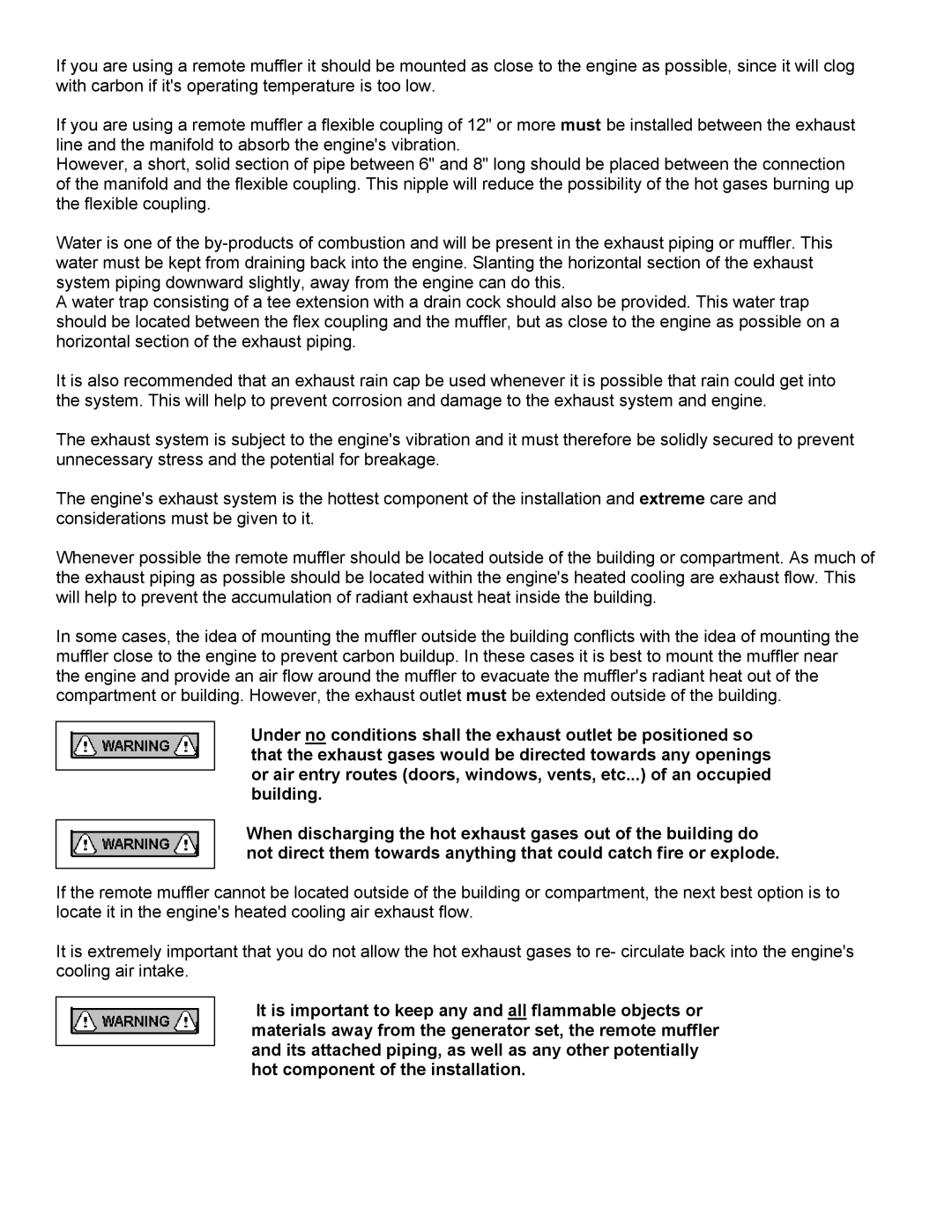
If you are using a remote muffler it should be mounted as close to the engine as possible, since it will clog with carbon if it's operating temperature is too low.
If you are using a remote muffler a flexible coupling of 12" or more must be installed between the exhaust line and the manifold to absorb the engine's vibration.
However, a short, solid section of pipe between 6" and 8" long should be placed between the connection of the manifold and the flexible coupling. This nipple will reduce the possibility of the hot gases burning up the flexible coupling.
Water is one of the
A water trap consisting of a tee extension with a drain cock should also be provided. This water trap should be located between the flex coupling and the muffler, but as close to the engine as possible on a horizontal section of the exhaust piping.
It is also recommended that an exhaust rain cap be used whenever it is possible that rain could get into the system. This will help to prevent corrosion and damage to the exhaust system and engine.
The exhaust system is subject to the engine's vibration and it must therefore be solidly secured to prevent unnecessary stress and the potential for breakage.
The engine's exhaust system is the hottest component of the installation and extreme care and considerations must be given to it.
Whenever possible the remote muffler should be located outside of the building or compartment. As much of the exhaust piping as possible should be located within the engine's heated cooling are exhaust flow. This will help to prevent the accumulation of radiant exhaust heat inside the building.
In some cases, the idea of mounting the muffler outside the building conflicts with the idea of mounting the muffler close to the engine to prevent carbon buildup. In these cases it is best to mount the muffler near the engine and provide an air flow around the muffler to evacuate the muffler's radiant heat out of the compartment or building. However, the exhaust outlet must be extended outside of the building.
Under no conditions shall the exhaust outlet be positioned so that the exhaust gases would be directed towards any openings or air entry routes (doors, windows, vents, etc...) of an occupied building.
When discharging the hot exhaust gases out of the building do not direct them towards anything that could catch fire or explode.
If the remote muffler cannot be located outside of the building or compartment, the next best option is to locate it in the engine's heated cooling air exhaust flow.
It is extremely important that you do not allow the hot exhaust gases to re- circulate back into the engine's cooling air intake.
It is important to keep any and all flammable objects or materials away from the generator set, the remote muffler and its attached piping, as well as any other potentially hot component of the installation.
